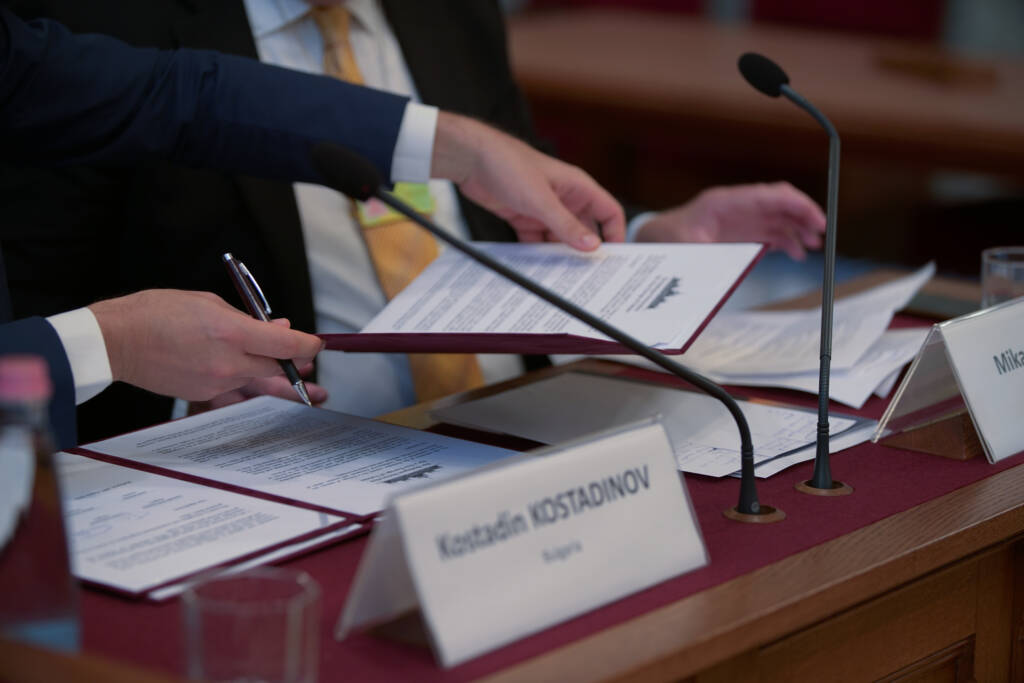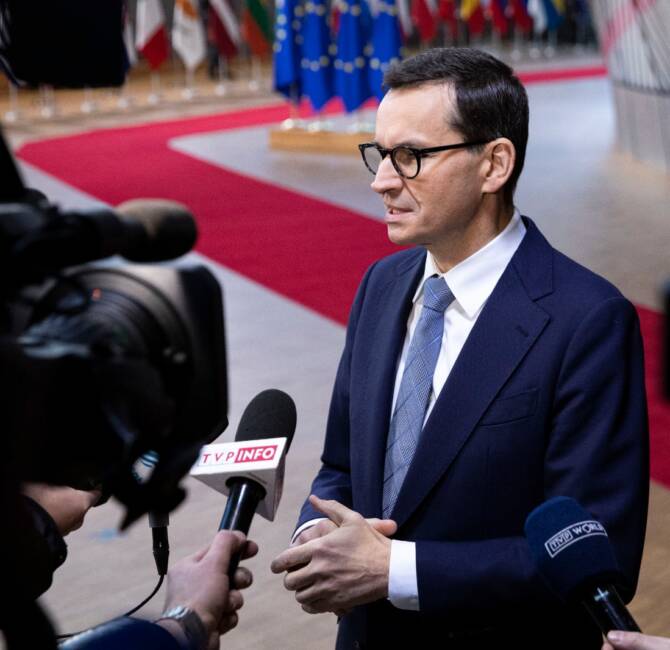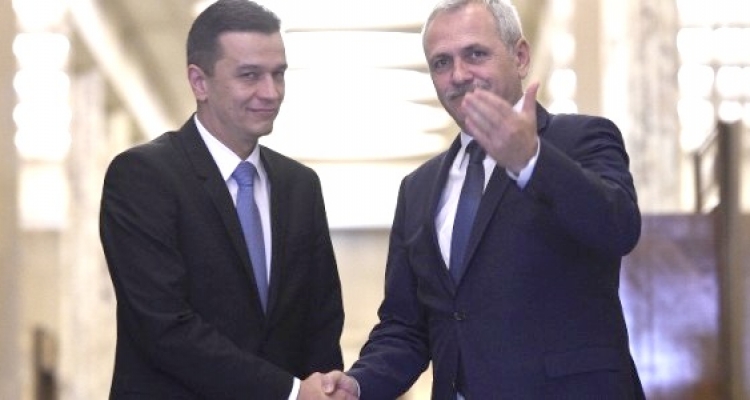Hungary – On Saturday 26 August, at the initiative of Hungary’s Mi Hazánk party, representatives of six European parties met in the Hungarian parliament to sign a joint declaration expressing their shared views on important issues in Western politics. With the campaign for the June 2024 elections to the European Parliament about to begin, this event could well be the starting point for a new European alliance, potentially leading to the creation of a new group in the European Parliament.
A new kind of alliance
The world is changing, and the recomposition of political alliances is the best indicator of this. On Saturday 26 August, the “Declaration for a Free Europe of Nations” sealed the coming together of nationalists and libertarians against an increasingly federalist and authoritarian European Union and progressive bloc.
This is in an unprecedented political configuration, in which the radical brand of nationalism which can still be found in countries of the former communist bloc meets with a libertarian movement which has arisen against the recent totalitarian drift of the Covid pandemic. Also notable was the absence of representatives from the EU’s biggest countries (France, Germany, Italy) which usually head right-wing “populist” coalitions in Europe.
The presence of Thierry Baudet, a Dutch MP and the president of the highly sovereignist and libertarian Forum for Democracy (FvD), as well as a best-selling author, was particularly noteworthy. On the day before, he presented the Hungarian translation of his book on Covid in front of a packed room in Budapest.
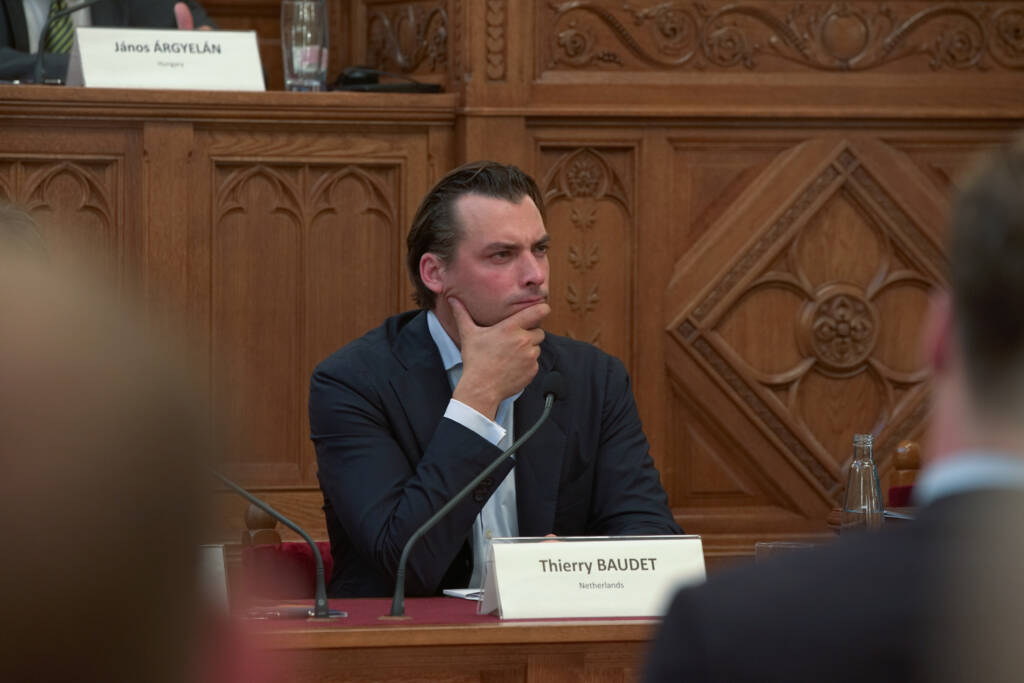
The Bulgarian Revival party (Vazrazhdane) was represented by its leader Kostadin Kostadinov, a historian. Vazrazhdane has emerged and developed following the demise of several Bulgarian nationalist parties (VMRO, Ataka), which lost electoral weight when they entered government coalitions, or supported government coalitions from outside. In terms of electoral weight, it is undoubtedly the strongest partner in the new coalition that is emerging.
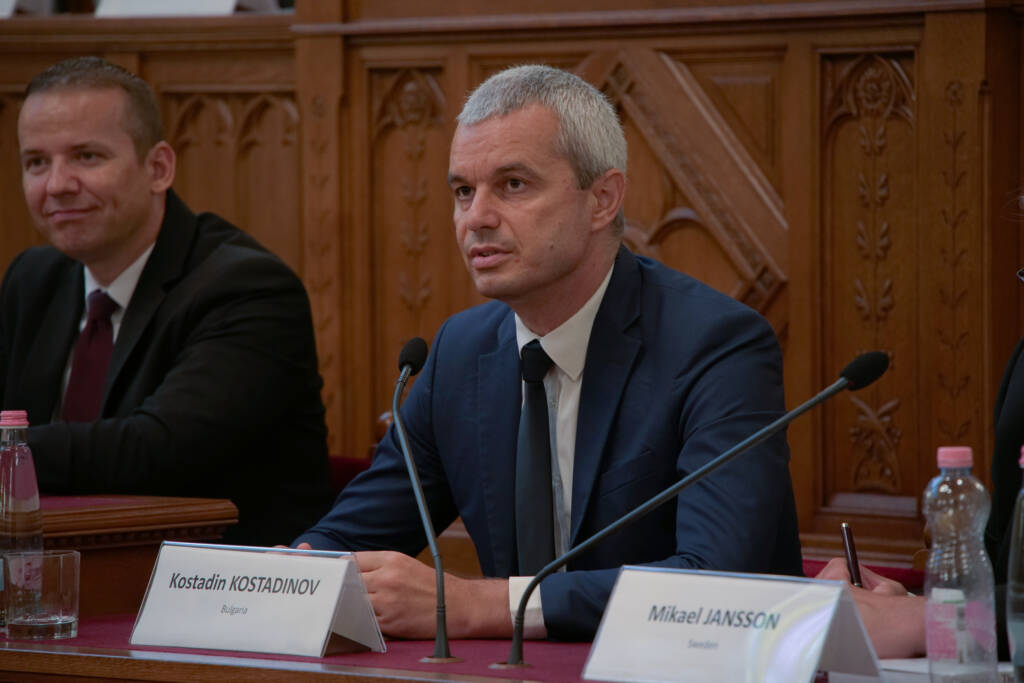
A spin-off from the Sweden Democrats, the small Swedish nationalist party Alternative for Sweden, sent its vice-president, Mikael Jansson. Alternative for Sweden hopes to capitalize on its hostile stance to Sweden’s NATO membership to make an electoral breakthrough.
The Czech Freedom and Direct Democracy (SPD) party, currently a member of the ID group (along with France’s National Rally and Germany’s Alternative for Germany), which is led by the original figure of a former businessman, Tomio Okamura, who is of mixed Czech-Japanese origin, had sent a delegate in the person of Josef Nerušil, a Prague city councillor.
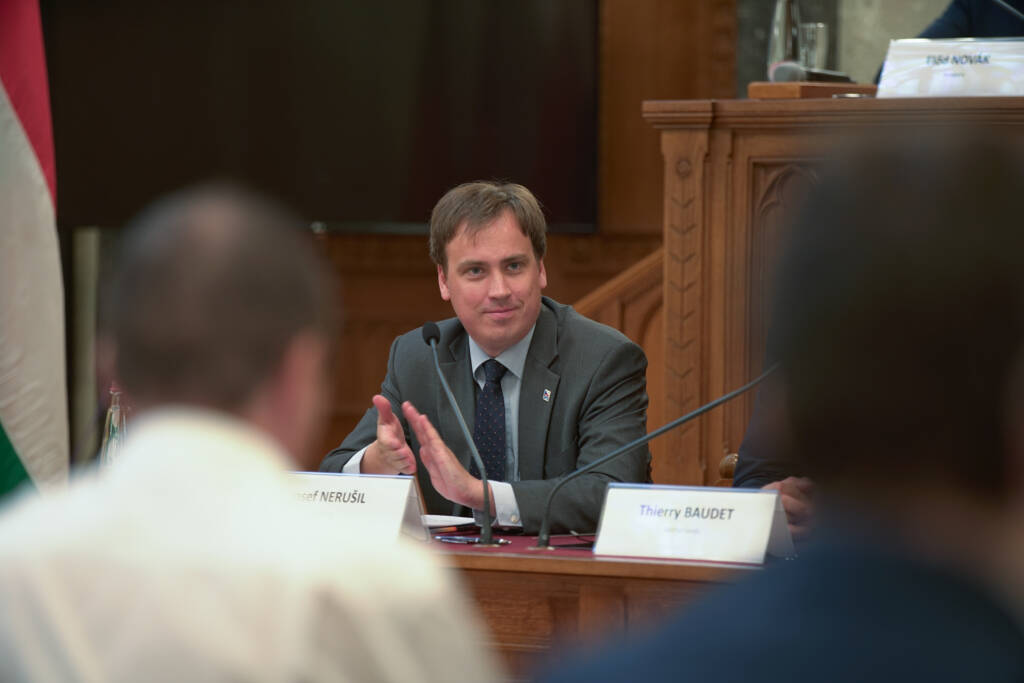
The presence of Nicolas Rimoldi to represent the young Swiss Mass-Voll party, which recently emerged to protest the anti-Covid and “Green Pact” measures, and of representatives from Serbia, lent a special tone to the gathering, broadening its scope to non-EU countries. As mentioned earlier, another original feature of that gathering was that it brought together medium-sized European countries only, without France, Germany and Italy, the usual heavyweights, and was mainly attended by delegates from post-communist Europe. It is therefore possible that the geographic centre of gravity of this new alliance will be to the east of the European Union.
Mi Hazánk, the party that organized and hosted the conference is a Hungarian nationalist opposition party to the right of Viktor Orbán’s Fidesz. With this gathering, it has demonstrated its desire not to be locked into national politics and to take an active part in European politics. It currently hopes to have up to three MEPs elected in 2024.
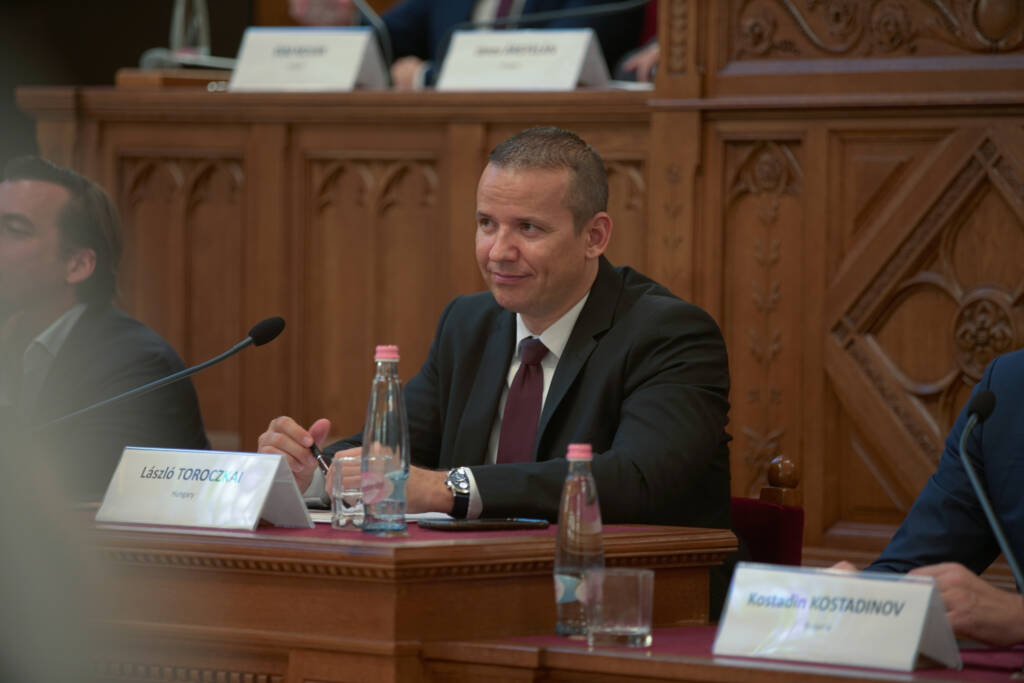
Besides their desire to display friendship and unity at a time of great uncertainty regarding the future recomposition of the European Parliament’s political groups, the right-wing parties which gathered in Budapest on August 26 do seem to share common views, as set out in their joint declaration.
The seven points of the Declaration express support for national sovereignty and protectionist economic policies, as well as an opposition to immigration, the defence of the family and opposition to wokeism and the LGBT agenda, the rejection of globalism and the restriction of individual freedoms, the defence of national democracy and the rejection of global governance, the defence of private property and an opposition to the virtual economy and digital currency, and also the defence of freedom of expression.
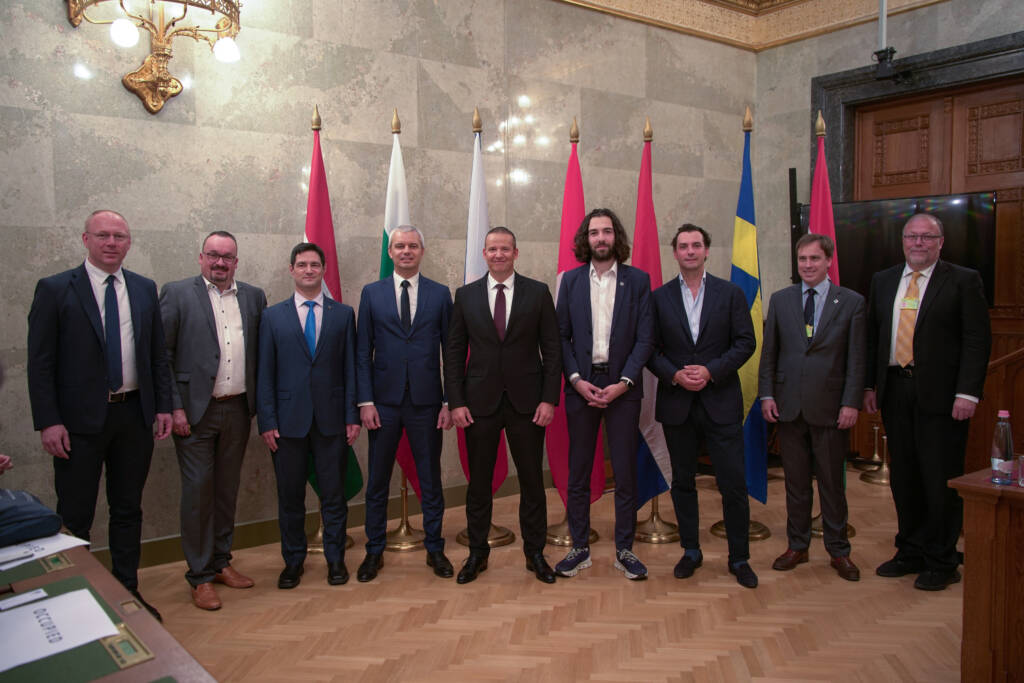
The text of the joint declaration:
